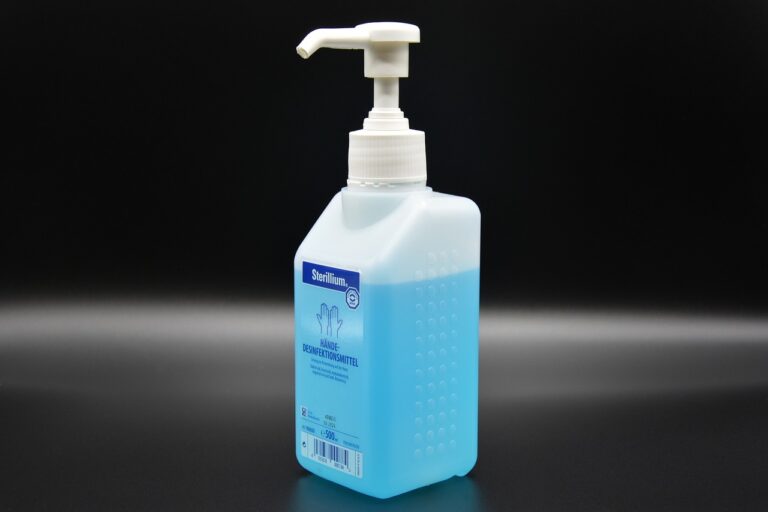The Benefits of Music Therapy in Speech Pathology
11xplay reddy login password, king 567, skyinplay live login:Music therapy has been gaining recognition for its effectiveness in various fields, including speech pathology. Speech pathologists work with individuals who have communication disorders, such as speech and language difficulties, and music therapy can be a valuable tool in their treatment arsenal. In this article, we will explore the benefits of music therapy in speech pathology and how it can help individuals improve their communication skills.
How Does Music Therapy Help in Speech Pathology?
Music therapy involves using music as a therapeutic tool to address physical, emotional, cognitive, and social needs. In the context of speech pathology, music therapy can help individuals with communication disorders in several ways:
1. Enhancing Communication Skills: Music has rhythm, melody, and harmony, which can help individuals improve their articulation, phonation, and fluency. By singing or chanting lyrics, individuals can practice vocal exercises and develop better control over their speech muscles.
2. Improving Language Development: Music therapy can stimulate language development in individuals with speech and language disorders. By singing songs, playing musical instruments, and engaging in musical activities, individuals can enhance their vocabulary, grammar, and sentence structure.
3. Enhancing Social Skills: Music therapy provides a fun and engaging platform for individuals to interact with others, collaborate on musical activities, and build relationships. This can improve their social skills, confidence, and ability to engage in conversations.
4. Boosting Cognitive Skills: Music therapy can stimulate cognitive functions, such as memory, attention, and problem-solving. Through musical activities, individuals can improve their cognitive skills and enhance their ability to process information and communicate effectively.
5. Reducing Anxiety and Stress: Music has a calming effect on the mind and body, which can help individuals relax, reduce anxiety, and alleviate stress. This can create a conducive environment for speech therapy sessions and improve the overall effectiveness of treatment.
6. Enhancing Motivation and Engagement: Music therapy can make speech therapy sessions more enjoyable, motivating, and engaging for individuals with communication disorders. By incorporating music into therapy activities, individuals are more likely to participate actively and stay focused on their goals.
Incorporating Music Therapy into Speech Pathology Sessions
Speech pathologists can incorporate music therapy into their sessions in various ways to enhance the effectiveness of treatment. Some strategies include:
1. Using Music-Based Activities: Speech pathologists can use music-based activities, such as singing, chanting, playing musical instruments, and listening to music, to address specific speech and language goals.
2. Creating Personalized Songs: Speech pathologists can create personalized songs with lyrics that target individual communication objectives, such as articulation, phonation, and fluency.
3. Implementing Rhythmic Exercises: Speech pathologists can use rhythmic exercises, such as clapping, tapping, and drumming, to improve speech fluency, timing, and coordination.
4. Engaging in Music Therapy Groups: Speech pathologists can conduct music therapy groups with individuals with similar communication disorders to promote social interaction, collaboration, and peer support.
5. Collaborating with Music Therapists: Speech pathologists can collaborate with music therapists to design integrated treatment plans that combine speech therapy techniques with music therapy interventions.
The Benefits of Music Therapy in Speech Pathology
The benefits of music therapy in speech pathology are numerous and can have a profound impact on individuals with communication disorders. Some key advantages include:
1. Improved Communication Skills: Music therapy can help individuals improve their articulation, phonation, fluency, and overall communication skills through engaging musical activities.
2. Enhanced Language Development: Music therapy can stimulate language development and enhance vocabulary, grammar, sentence structure, and comprehension in individuals with speech and language disorders.
3. Increased Social Skills: Music therapy can improve social skills, confidence, and interaction in individuals by providing a fun and collaborative platform for communication.
4. Enhanced Cognitive Function: Music therapy can stimulate cognitive functions, such as memory, attention, problem-solving, and information processing, leading to improved communication abilities.
5. Reduced Anxiety and Stress: Music therapy can help individuals relax, reduce anxiety, alleviate stress, and create a positive and supportive environment for speech therapy sessions.
6. Enhanced Motivation and Engagement: Music therapy can make speech therapy sessions more enjoyable, motivating, engaging, and effective by incorporating musical elements into therapy activities.
FAQs
1. What is music therapy in speech pathology?
Music therapy in speech pathology involves using music as a therapeutic tool to address communication disorders, such as speech and language difficulties, in individuals.
2. How can music therapy help individuals with communication disorders?
Music therapy can help individuals with communication disorders by improving their communication skills, language development, social skills, cognitive function, reducing anxiety and stress, and enhancing motivation and engagement.
3. How can speech pathologists incorporate music therapy into their sessions?
Speech pathologists can incorporate music therapy into their sessions by using music-based activities, creating personalized songs, implementing rhythmic exercises, engaging in music therapy groups, and collaborating with music therapists.
4. What are the benefits of music therapy in speech pathology?
The benefits of music therapy in speech pathology include improved communication skills, enhanced language development, increased social skills, enhanced cognitive function, reduced anxiety and stress, and enhanced motivation and engagement during therapy sessions.
In conclusion, music therapy can be a valuable and effective tool in speech pathology for individuals with communication disorders. By incorporating music into therapy sessions, speech pathologists can help individuals improve their communication skills, language development, social skills, cognitive function, reduce anxiety and stress, and enhance motivation and engagement. If you or someone you know is struggling with a communication disorder, consider exploring the benefits of music therapy in speech pathology for a holistic and comprehensive approach to treatment.







